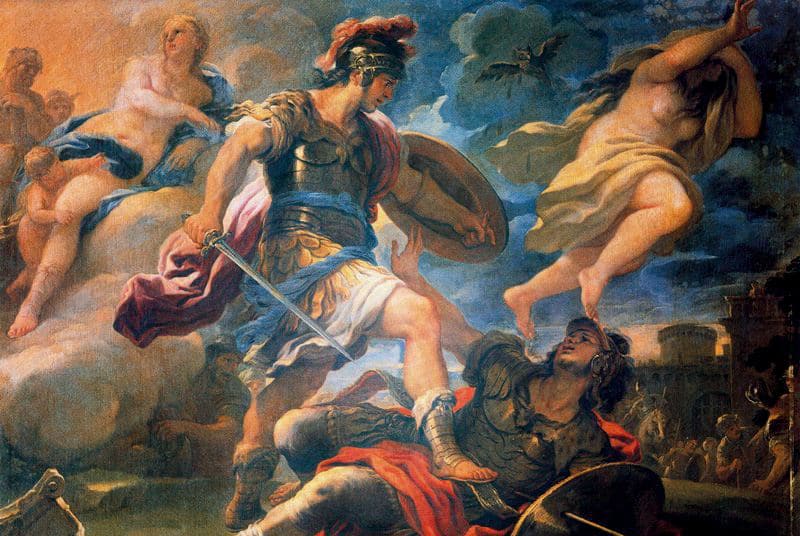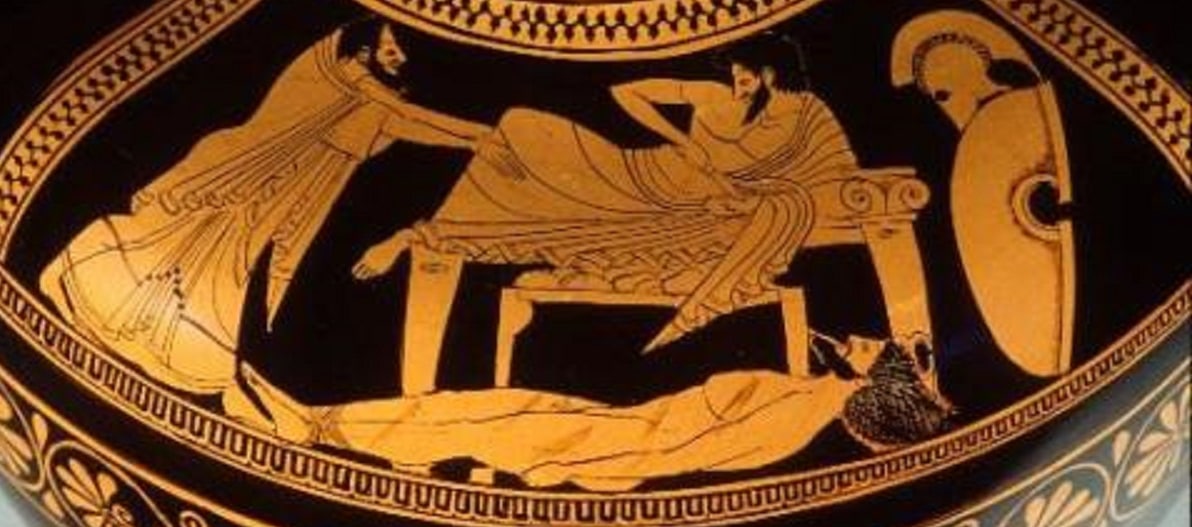Conversing with my colleagues during our weekly management meeting is always a bit exasperating. Their marathons, mountain bike challenges and adventure races put my weekend activity of pruning roses to shame. The insult to injury is that these activities always take place in some exotic location. Think of a beach, desert or some God forsaken area in the wild. It was during one of these sessions that it struck me that I needed a constructive hobby.
It is self-evident to people that know me that a sport related hobby will not cut muster with me. The closest I come to exercise is ambling down the escalator to have lunch with a colleague. So where to start? I had to first figure out what my “thing” is. This is far easier said than done. I always imagined myself as an Indiana Jones in Raiders of the Lost Ark. What could be better than exploring an ancient cave, blowing dust off some ancient tablet and deciphering messages that were hidden for thousands of years? Throw in a bi-plane, a gorgeous girl, a couple of Nazi thugs and you have yourself a great hobby. As an example consider a cryptic statement like “Ἐν ἀρχῇ ἦν ὁ Λόγος, καὶ ὁ Λόγος ἦν πρὸς τὸν Θεόν”. One has to be absolutely crazy not to wonder what riches this puppy can deliver. As always reality kicks the fun out of fantasy. In the end my hobby turned into the far more mundane goal of reading the New Testament in the original Greek.
I had absolutely no idea what I let myself in for. Ancient Greek turned into the single hardest and also most rewarding thing I have done in a very long time. In retrospect I think an ultra-marathon across a desert filled with poisonous vipers would have been far easier.
My first challenge was to find a teacher. I decided to do Biblical, or to be technically correct Koine Greek, through a correspondence university. As a middle aged working man, that is about the only option I had. Joining daytime classes with 18 year old theology students just didn’t sound that appealing. I felt really excited when my study material arrived with a lovely letter from the lecturer encouraging me on this journey. It was cute. Now I know Phlip Bosman is an absolute liar. Cute turned into a kick in the nether parts.
As Greg mentions in his blog, Greek studies start with temptation. You figure out a letter here and there, feel a bit of an adrenaline rush when spotting a verb, are amazed when it dawns on you that nouns have gender. Alas, this is all just a way to trick you into the hard stuff. Before you can blink you are dealing with a verb system which has four moods (indicative, imperative, subjunctive and optative), three voices (active, middle and passive), as well as three persons (first, second and third) and three numbers (singular, dual and plural). Verbs are conjugated in four main combinations of tense and aspect (present, future, perfect, and aorist), with a full complement of moods for each of these main tenses. Please donate to Wikipedia as a thanks for this useful definition. And just when you think a word like “the” would be a simple translation, you realise that there are 24 ways to say just that. And that dear reader is only the grammar. We haven’t even started to look at the vocabulary.
Fortunately I managed to plod my way through the first year. The University where I studied didn’t do second year Ancient Greek, so I was referred to another university that only does Classical Greek rather than the more Biblical Greek. I banged off an email to the other university begging to be accepted for Greek 2. That however was not plain sailing as I first had to be checked out before I was admitted. The sizing up happened in my new lecturer’s living room over a couple of glasses of whisky. My new lecturer, I found out post fact, was also a confirmed heretic. If it was the Middle Ages he would have been burned at the stake. Lovely. Again disappointment followed as I had to re-learn a whole new vocabulary as the Bible focuses on words like love, peace and forgiveness, whereas Classical Greek focuses more on war, pillage, carnage, pests, and general lewdness.
So now three years later I can at least read a bit of Ancient Greek. I still need a dictionary most of the time. More importantly I have bragging rights. When I mention at a cocktail party that I can read Ancient Greek, mouths fall open. No matter that I have a PhD in Artificial Intelligence. It is the Greek that people find astounding. I also get invited to go to conferences like “Mania in the Ancient World” or “Power in an Iron or Velvet Glove”. This beats the pants off Machine Learning conferences. Through this journey through the classics my circle of acquaintances has expanded. None of my colleagues has a heretic as a friend. This is true bragging rights.
But now, dear reader, you might ask why did I share this little ditty with you and how does it link to our previous theme of mastery? There is no way that you can study Greek without at least an interest in the culture and the Greco-Roman or Biblical worlds. You need something to keep you going when the going gets tough. No amount of cleverness will help you with Greek. The beginning stages are all about rote learning and for that you need discipline. A couple of evenings every week should be spent on learning grammar, practising your vocabulary and reading. You need to concentrate. You cannot immerse yourself in this if you do not cut out all distractions. You also need patience. Where I thought that I could do this in a relatively short time, I was wrong. It will take you years to achieve reasonable mastery. I also found some tools to help me with memorisation. Have a look at the Memrise app that is great help with spaced repetition learning. Incredibly helpful are world-class teachers and mentors who motivate and keep you going. It is also incredibly helpful to have continuous assessments that provides an objective baseline of your mastery and give you a target to aim for.
During the last two years we have been on a journey to transform a large bank from a traditional silo-driven organization to something that can compete with the best product development houses in the world. We have focused on transforming the Information Technology Division to be more Agile and Lean. DevOps was also thrown into the pot for good measure.
It has been a really exciting journey as very few organizations have successfully transformed at the scale we envision. All of the meta-skills I collected during my Greek journey have come in handy. A transformation like this is incredibly hard and the cultural change management aspects really eat at one’s energy and resolve. A real interest in the subject matter has kept me going. Almost every day I have had to read up on what other people are doing to keep my knowledge and skills passable. I don’t think one can embark on a journey like this if you are not constantly reading and keeping abreast with the market. This has taken concentration and discipline.
A journey like this cannot be done overnight. Market analysis says it takes three to five years. Real patience is needed to stay the course. Even simple tools like Twitter, LinkedIn and Medium help to gather information.
During this journey I have met people who are far outside my friendship and professional circles. I now have friends in San Francisco, New York, London and even Windhoek in Namibia. This would not have been possible if we did not embark on this journey and build relationships with experts.
The best of all has been to get continuous feedback which shows that our transformation is working. Assessing constantly and keeping a set of metrics to see it we are staying the course is non-negotiable.
As you can see there is in essence very little difference between what is needed to become a master at Greek or a kick-ass Ironman athlete. The real benefit of studying Greek was that it gave me the meta-skills to deepen my craft around Agile and DevOps.
If you can’t wait to dip your toe in some Ancient Greek, here are some resources.
Duff is a great introduction to Biblical Greek:
JACT is a great inductive teaching method for Classical Greek:
The Lysistrata is for the more discerning reader:







Your quote from the Gospel according to John became the basis of my senior thesis, made possible by three years of Greek, with professors who made it fun (really)! However, my route began with Classical Greek, and progressed to Koine (the Gospel according to Mark) and ending up with a selection of readinga from the second century Church Fathers (yes, I was one of rhose 18 year old theology students; we weren’t so bad). I also had the privilege during my first and third years to be trained by someone who had been in the business of teaching Greek for over 40 years (Dr. Turner), and to work through his critical addition of Sophocles’ “The Clouds”. If you have not read this yet, I highly recommend it as it is both instructive and highly entertaining.
Very nice. To think that one can still write on John 1:1 two thousand years after the fact and still find new things. As an aside I own “The Clouds”. Reading the whole thing and owning it are two different things! I bought it in an antiquarian bookshop and it was the prescribed reading for a student in his second year of study in 1931.The parts I read were as you said very good and funny.